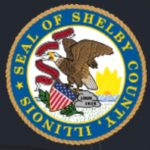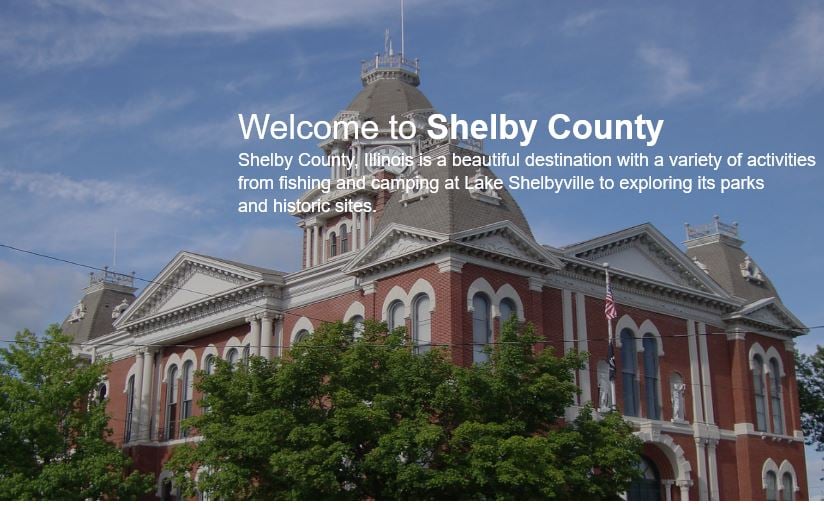Shelby Co. (ECWd) –
Over the years we have seen an increase of interest in county government in Shelby County. Past meeting attendance was basically nonexistent whereas now, after our live-streaming of meetings for years, the public interest has grown. This is a good thing as it has not only drawn a great group of elected officials who have taken on the task of actually fixing things, but they are also eager and willing to learn how their own local government is supposed to function properly.
Part of the learning curve is understanding the applicable local government statutes and how they are to be applied. We commonly see people pointing to a statute in isolation from any other law or case law to support their opinion but fail to understand how those other items are connected and must also be part of the analysis of the discussion.
A few examples:
The Open Meetings Act outlines all meetings are required to have at least a 48hr notice except for emergency meetings (5 ILCS 120/2.02). If people read just that section and tell people that is the law of the land for the county government, they spread misinformation. Reading 5 ILCS 120/2.04 they would learn the OMA notice requirements are “in addition to, and not in substitution of, any other notice required by law. The Counties Code (55 ILCS 5/2-1002) outlines notice requirements for County Board “Special Meetings”. Those requirements are different than OMA, so which law applies? The answer is both.
55 ILCS 5/5-21005 – Management of home or farm outlines provisions for counties to lease their farm property. Some have recently implied this legislation, first enacted in Public Act 80-679 in 1977 paves the way for a lease of farm ground connected to a county shelter care home. Such a position is reading statutes in isolation and ignoring the state constitution, case law, and attorney general writings. Those claiming this law made county farm ground leases proper without providing context mislead people.
While this statute outlines farms can be leased to public or private entities, it is well established that “when the General Assembly expressly authorizes a county to lease county property to a private entity, there is a presumption that a proper public purpose exists. (Wirtz, 2011 IL 111903 at i]78, 953 N.E.2d at 917). We know, from numerous Attorney General opinions and case law, leasing public property to a private entity for their sole profit from its use is not a proper public purpose. The other language which tends to be confused when reading and interpreting this law is “public or private entities”. A private entity can lease the property but such lease must still meet the public purpose obligations within the Constitution. An example of that can be found in the Tazewell County farm lease. We note this is one of those counties that County Board Member Carol Cole pointed to as leasing farm ground in her effort to justify Shelby County leasing to a private farmer.
Tazewell County leases its farm to a private entity that appears to meet the public purpose test because it is farmed by the Future Farmers of America and Tremont Future Farmers of American Alumni and Supporters whose proceeds are put towards the youth organization preparing members for leadership and careers in the science, business, and technology of agriculture. Had Ms. Cole done just a little more research she would have found the distinctive difference in what she is advocating for vs what is actually happening in Tazewell County.
Of interest in Tazewell County is the fact they also have entered into a lease option with a solar farm operation for the same ground. An attempt was made by Representative Halbrook to include solar in a recent farm lease bill and such efforts were flatly rejected. We have not found any legislation specifically permitting counties to lease their property to a solar farm company, and considering the legislature rejected such an option, it does not appear they wanted that to happen.
Cemeteries
In Shelby County, the subject of the cemetery on the farm ground has raised all kinds of speculation comingled with just enough truth to confuse and mislead even the most savvy. Throw a lawyer’s opinion into the mix who failed to look at a few other statutes and presto, misinformation is the result.
A recent social media post cited two statutes, the Cemetery Protection Act and The Skeleton Remains Protection Act. The poster took the position he believes the Skeleton Remains Protection Act is the appropriate law as it relates to the bodies buried on the county property.
In years of research, we have never seen a single subject matter have so many laws and rules as we have found with Cemeteries. For people to pick one that agrees with their position and ignore all the rest is reading statutes in isolation.
State Laws
- 20 ILCS 3440 Human Skeletal Remains Protection Act (*this is the only Act administered by the Illinois Historic Preservation Agency)
- 225 ILCS 411 Cemetery Oversight Act.
- 330 ILCS 110 Veterans Burial Places Act
- 410 ILCS 5 Burial of Dead Bodies Act
- 525 ILCS 30/3.01, Illinois Natural Areas Preservation Act – 30/3.03, 30/3.04, 30/11, 30/12
- 720 ILCS 5/21 Criminal Offenses – Damage and Trespass to Property
- 760 ILCS 100 Cemetery Care Act (administered by the Illinois State Comptroller’s Office)
- 765 ILCS 820 Cemetery Land Ownership and Transfer Act
- 765 ILCS 835 Cemetery Protection Act
- 805 ILCS 320 Cemetery Association Act
COUNTY LAWS
- 55 ILCS 65 County Cemetery Care Act
- 55 ILCS 70 Grave and Cemetery Restoration Act
Illinois Administrative Code
- TITLE 17: CONSERVATION – CHAPTER VI: ILLINOIS HISTORIC PRESERVATION AGENCY PART 4170 RULES FOR THE PROTECTION, TREATMENT AND INVENTORY OF UNMARKED HUMAN BURIAL SITES AND UNREGISTERED GRAVES
Several of the above laws and parts of the Illinois Administrative Code have language indicating it would apply to the cemetery and bodies buried on the county farm property. Reading a single statute in isolation may support a position or desired outcome, however, it does little to get to the actual truth of the matter. We are confident if people would read and apply all the laws a resolution could be found as it relates to bodies buried on the county property and future farming operations.
The above are just a few examples where reading a statute in isolation from other laws, our Constitution, or rules set by the state can and do mislead people to believe something that can be entirely inaccurate. When such misinformation is spread, as we routinely see by a select few in Shelby County, a division is created. It appears their focus is on bashing those who are actually trying to do things right and fix things through a venue of expressing their opinion on any given law in total isolation of all the other laws and opinions on matters.








No Comments
Sorry, the comment form is closed at this time.